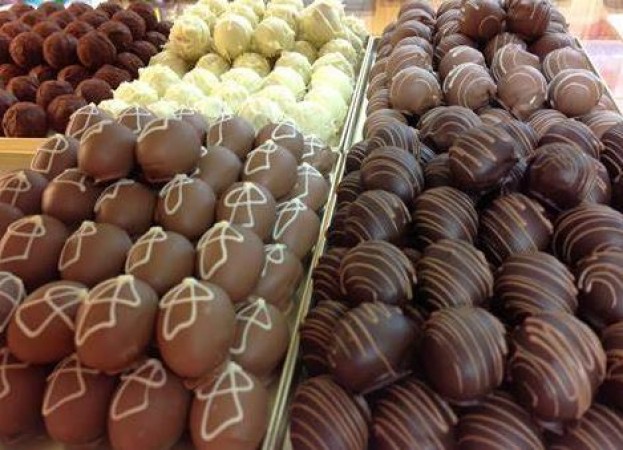
Chocolate, the delectable treat loved by millions worldwide, has a fascinating history that spans thousands of years. From its humble beginnings as a bitter beverage among the ancient Mayans to its transformation into the beloved confectionery we know today, the journey of chocolate is a rich tapestry of culture, trade, and innovation. In this article, we'll delve into the intriguing history of chocolate, exploring how it evolved from an ancient ritualistic drink to the wide array of scrumptious delights that grace our taste buds today.
Ancient Beginnings: The Mayans' Bitter Brew
The origins of chocolate can be traced back to the ancient Mayan civilization of Mesoamerica. Around 1900 BC, the Mayans cultivated the cacao tree and harvested its seeds to create a bitter beverage called "xocolātl," meaning "bitter water." This beverage held significant cultural and religious importance, often used in ceremonies and rituals. The Mayans believed that cacao had divine properties, and its consumption would grant wisdom and power.
The Aztecs' Golden Currency
The love for cacao spread beyond the Mayans, and the Aztecs of Central America also adopted the use of cacao seeds as currency. The beans were so highly valued that they were often used for trade and as a form of money. The Aztecs continued the tradition of consuming cacao in the form of a frothy drink mixed with spices and chili peppers, considering it a luxurious delicacy reserved for royalty and the elite.
Chocolate in the Hands of the Spanish Explorers
The first encounter between the Europeans and cacao happened during Christopher Columbus's fourth voyage in 1502 when he was introduced to cacao beans but failed to recognize their significance. It wasn't until Hernán Cortés, the Spanish conquistador, encountered Montezuma II, the Aztec emperor, that the true value of cacao was revealed. The Spanish explorers brought cacao back to Europe, and its popularity started to spread among the nobility.
From Bitter to Sweet: The Addition of Sugar
Initially consumed as a bitter beverage, chocolate's taste underwent a significant transformation in the 16th century. European chocolatiers began to sweeten the drink by adding sugar, making it more palatable and appealing to a wider audience. This marked the beginning of chocolate's journey from a ceremonial drink to a delectable treat for all.
The Industrial Revolution: Chocolate Goes Mass Market
The invention of the cocoa press by Coenraad Van Houten in 1828 revolutionized chocolate production. The cocoa press separated cocoa solids from cocoa butter, allowing for the production of cocoa powder. This made chocolate easier to manufacture and paved the way for the mass production of chocolate bars and other confectioneries. The Industrial Revolution made chocolate more accessible to people from all walks of life.
Milk Chocolate: A Sweet Invention
In 1875, Daniel Peter and Henri Nestlé collaborated to create the first milk chocolate bar by adding condensed milk to chocolate. This revolutionary combination resulted in a sweeter, creamier, and more delightful version of chocolate. Milk chocolate's popularity skyrocketed, and it became a staple treat enjoyed by people of all ages.
The Chocolate Boom: From Cadbury to Hershey
The late 19th and early 20th centuries saw a surge in chocolate's popularity, with several iconic brands emerging during this time. Companies like Cadbury and Hershey played pivotal roles in making chocolate a global sensation, introducing various flavors and products that continue to delight chocolate enthusiasts to this day.
Chocolate Today: Artisanal Creations and Health Benefits
In modern times, chocolate has evolved into an art form, with skilled chocolatiers crafting artisanal chocolates with unique flavors and intricate designs. Additionally, scientific research has highlighted the potential health benefits of chocolate when consumed in moderation. Dark chocolate, in particular, is rich in antioxidants and may have positive effects on heart health.
The history of chocolate is a tale of transformation, from an ancient ceremonial drink in the Mayan and Aztec cultures to the modern-day sweet indulgence loved by people all over the world. The journey of chocolate showcases the ingenuity and creativity of civilizations past and present. So, the next time you savor a piece of chocolate, take a moment to appreciate the centuries of history and culture that have contributed to the delectable delight in your hand.
The Winner of Fresh vs. Frozen Green Peas Will Surprise You
5 Benefits of Chewing Food Properly
Men can try these 5 natural home remedies for healthy, glowing skin